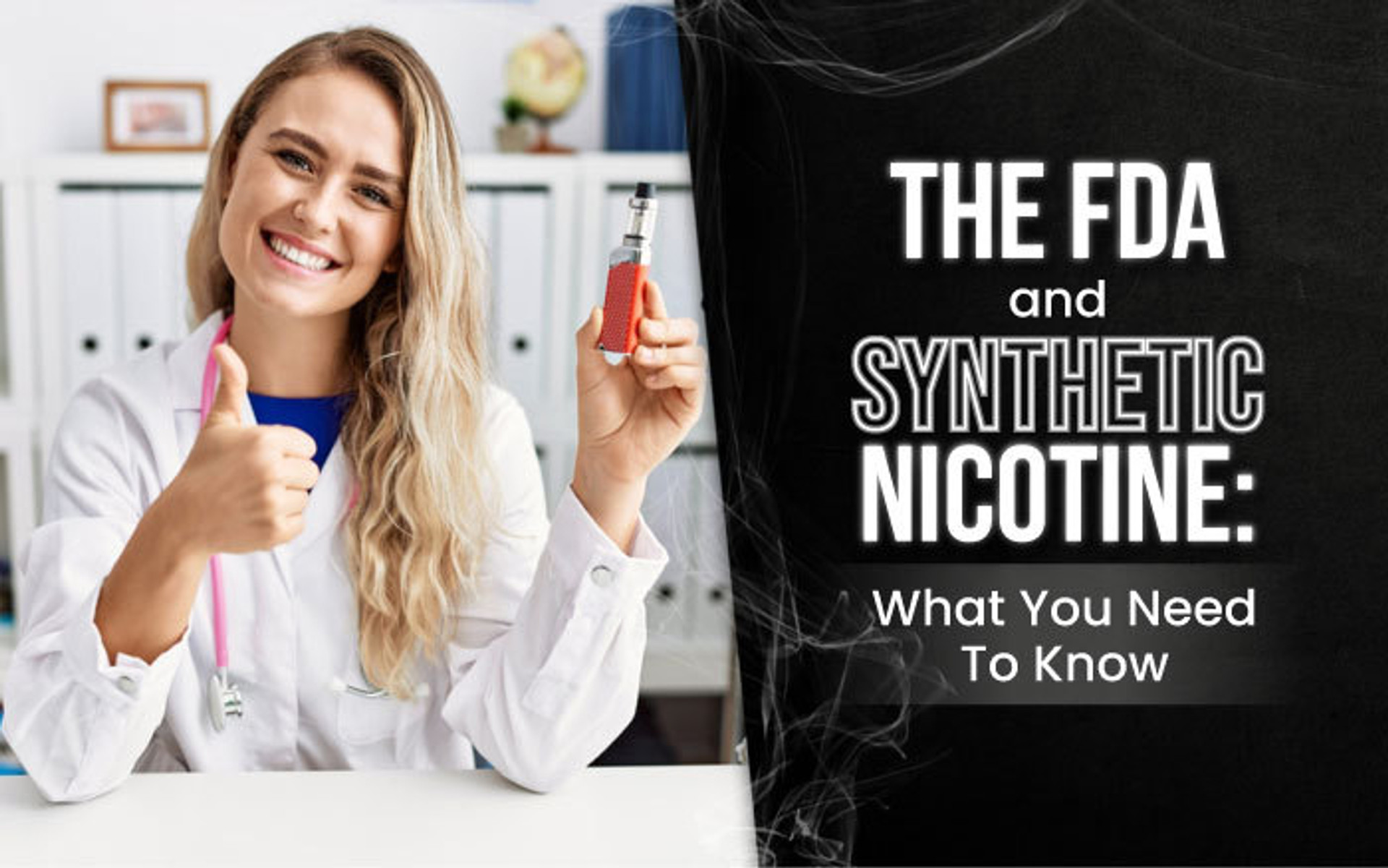The FDA and Synthetic Nicotine: What You Need To Know
Estimated 0 min read
The FDA is the main entity in charge of regulating nicotine consumable products and as you know, they have always been quite strict with regulations regarding vape products. Especially flavored vape products, which the agency claims have a negative impact on underage nicotine consumption. But that’s a discussion for a different time.
Until this year, the agency’s efforts have been focused on vape products made with tobacco-derived nicotine. It’s only since July 2022 that the FDA regulates synthetic nicotine with a force similar to that which they have applied to other tobacco-derived products. As of July 14th, it is illegal to market any tobacco-free nicotine (TFN) products without an approved premarket tobacco application (PMTA).
This happened after the language in the Tobacco Control Act was modified to include non-tobacco-derived nicotine. Since then, things have changed.
The FDA’s Warning Letters
First came a round of warning letters to a list of retailers that allegedly sold TFN products to underage users. This list of retailers included businesses that sold products that didn’t include vape products only.
Warning letters were also issued to businesses that continued selling products without submitting a PMTA. Many of these were companies that were registered for tobacco-derived nicotine products but failed to submit a PMTA for TFN products. Many of these were small local businesses.
Who the FDA Focuses On and Why
Now that the FDA regulates synthetic nicotine, it can be understood that the agency is mainly focusing on regulating products that have the greatest potential to reach the underage population, according to statements by FDA officials. This allows us to assume that the main focus of this effort will be gas stations and convenience stores, although some vape shops may fall under scrutiny as well.
The American Vapor Manufacturers Association (AVM) has asked the FDA for enforcement discretion on manufacturers that filed applications before the deadline and follow FDA rules. The FDA could not promise enforcement discretion but did say it would not focus efforts on enforcement of bottled e-liquids in adult stores.
Why Now?
As Puff Bar was gaining popularity in 2020, the manufacturer received a warning letter and stopped sales in the U.S., only to announce it was back on the market in March 2021, now promoting the product as a TFN item. If real, this was completely legal at the time.
However:
This provoked anti-vape groups’ rage and put the FDA under a lot of pressure to close in on TFN vape products altogether. The effort to go after synthetic nicotine vape products was also supported by some of the vape industry’s most successful companies. Companies whose sales could be negatively impacted by disposable TFN vape pens sold in convenience stores and gas stations. Which is why the FDA synthetic nicotine ban is, for lack of a better term, fishy.
Final Thoughts
The future of synthetic nicotine vapes is uncertain. What we do know is that for the time being, TFN products represent one of the simpler ways for brands to launch products to market. The above is a recap of how the vape industry has been affected by FDA regulations and a good way of handling expectations when it comes to the future of the vape industry.







